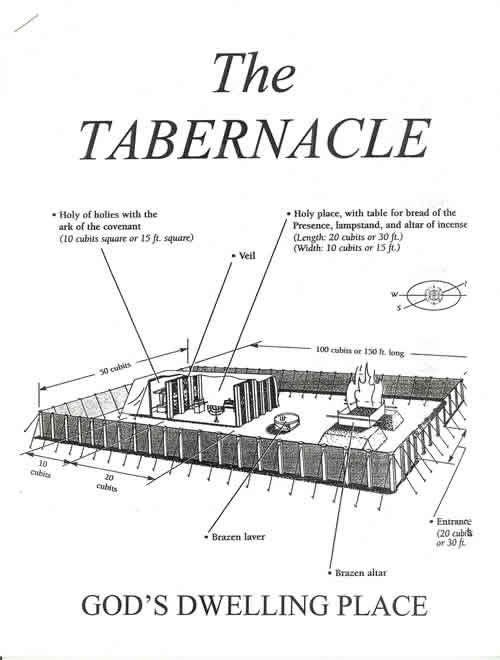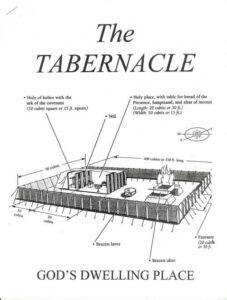Changes Needed in the Church: #8 Involvement

In Exodus, as you read the story of the Israelites’ wanderings, I’m amazed at how God’s interventions were often ignored. Then God commands them to set up the Tabernacle.
From the wilderness to worship. In 500 intricate steps.
 God gives very specific step-by-step instructions (OK, I didn’t actually count the steps, but wow, there are a lot of them!). And the Israelites didn’t quibble over any of them. At least that I can remember — or that are notated in the Bible.
God gives very specific step-by-step instructions (OK, I didn’t actually count the steps, but wow, there are a lot of them!). And the Israelites didn’t quibble over any of them. At least that I can remember — or that are notated in the Bible.
I can only imagine what we would have done. “but God, I think if we made the tabernacle a bit wider, we could fit more people in.” Or “God, have you considered adding more windows?”
This time reading it, I was struck by the fact that God asked the people to contribute. To be involved.
God could have done it all Himself with a mighty “poof” of His hand. But He wanted the Isrealites to participate in the materials and manufacturing of their house of worship.
I think that often, Pastors and “full-time Leaders in the church” get in the swing of doing almost everything, and they don’t allow the people in the pew to participate.
I know they talk the talk of how they want volunteers, but I wonder how many Pastors allow people of the congregation to share the stage with them on a Sunday. Or do you only allow the congregation to be involved with “back stage” roles?
What’s the Solution?
Think about it. Virtually every educational or edutainment outlet has been broken down into bite-sized pieces. If you watch the morning news shows, you see that our attention span is short. All the stories are less than 3 minutes long. And even most tv shows know that a scene can’t last much longer than a few minutes. Commercials are 30 seconds or a minute. Short, to the point, BAM!
We’ve been primed to take in short bites of information.
So how do those points go together? Consider how long your worship times are in your service, or your preaching times. Then consider using talented people from your congregation to “break up” the times. Solos, testimonials, video clips, Bible reading, dramatic scenes, and the list goes on and on.
What you’d end up with is more “ownership” of the worship time, more interesting services, and the messages would be solidified more in our minds.
All it takes is a little organization and pre-planning. And allowing the congregation to use their gifts. I guess that’s what the Isrealites did. And as their tabernacle came together perfectly, it was worth the effort.
Want 25 Game-Changing Resolutions?
Related Posts

Christmas Church Communication Strategy: 3 Nativity Lessons
Christmas isn’t just another event on the calendar; it’s a strategic opportunity to communicate the Gospel to a world that’s

3 Church Leadership Skills That Transform Your Ministry
You didn’t accept a call to ministry just to maintain the status quo. You were called to lead to inspire,

How to Create a Church Marketing Strategy That Reaches Your Community
You’ve been called to lead a church that makes a difference in your city. That means developing a clear church

